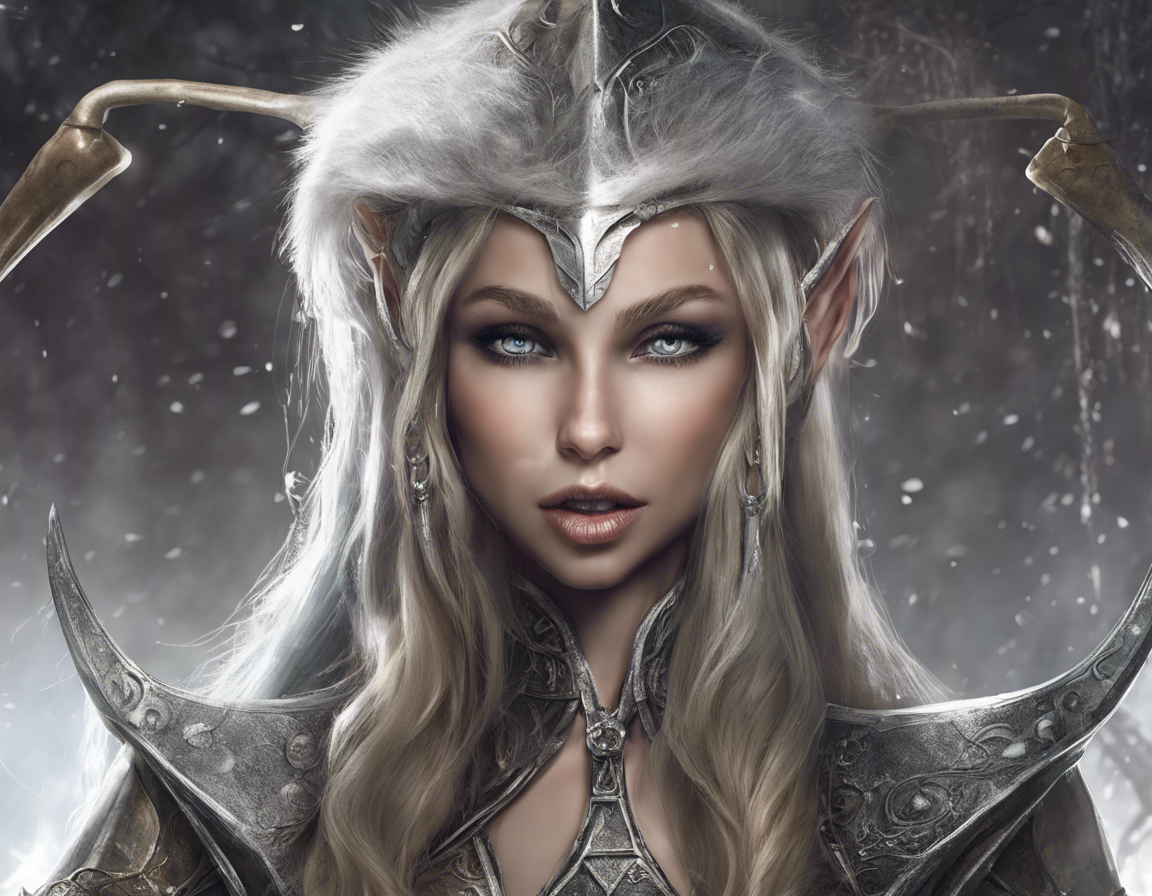
Exploring the World of Futanari Elves
In the realm of fantasy and erotic literature, futanari elves have gained prominence as a unique and intriguing subgenre. Combining elements of traditional fantasy settings with the allure of futanari characters, this niche has captured the imagination of many fans. In this article, we will delve into the world of futanari elves, exploring their origins, characteristics, popular themes, and the reasons behind their appeal.
Origins of Futanari Elves
Futanari, a term originating from Japanese culture, refers to characters who possess both male and female genitalia. Elves, on the other hand, are mythical beings often depicted as elegant and magical creatures in fantasy literature. The fusion of these concepts has given rise to futanari elves, a unique blend of traditional fantasy and erotic elements.
The roots of futanari elves can be traced back to Japanese manga and anime, where futanari characters are a common trope in adult-themed works. Over time, this concept has found its way into Western literature and art, where it has been reimagined within the context of fantasy worlds populated by elves, dwarves, and other fantastical beings.
Characteristics of Futanari Elves
Futanari elves are typically portrayed as stunningly beautiful and ethereal beings, with slender bodies, pointed ears, and an otherworldly grace. They possess both male and female anatomical features, combining the best of both genders in a single body. This duality often extends beyond physical traits, influencing their personalities and abilities as well.
In many narratives, futanari elves are depicted as powerful and enigmatic figures, wielding magic and charm with equal proficiency. They are often shown as seductive and alluring, capable of captivating those around them with their mystique and allure. Despite their extraordinary nature, futanari elves are often portrayed as complex and multidimensional characters, grappling with their dual identities and the expectations of the world around them.
Popular Themes in Futanari Elf Literature
Futanari elf literature explores a wide range of themes, blending elements of fantasy, romance, and erotica to create captivating narratives. Some common themes found in this genre include:
-
Identity and Acceptance: Futanari elves often struggle with their dual nature, navigating issues of identity and self-acceptance in a world that may not understand or appreciate their uniqueness.
-
Forbidden Love: Many stories feature romances between futanari elves and other characters, exploring themes of forbidden love, desire, and societal taboos.
-
Power and Magic: Futanari elves are often portrayed as skilled magic users, harnessing their supernatural abilities to overcome challenges and shape the world around them.
-
Exploration of Gender: The presence of both male and female traits in futanari elves provides an opportunity to explore and challenge traditional gender roles and expectations.
-
Adventure and Intrigue: From epic quests to political intrigue, futanari elf stories often feature richly detailed worlds filled with danger, excitement, and discovery.
Reasons Behind the Appeal of Futanari Elves
The appeal of futanari elves lies in their unique blend of fantasy, sensuality, and intrigue. Here are some reasons why this subgenre has captured the imagination of many readers and fans:
-
Uniqueness: Futanari elves offer a fresh and unconventional take on traditional fantasy tropes, providing a new perspective on mythical beings and their abilities.
-
Exploration of Taboos: The presence of futanari characters allows for the exploration of themes related to gender, sexuality, and societal norms in a fantastical setting.
-
Romantic and Erotic Elements: The allure of romance and eroticism is a significant draw for many readers, adding an extra layer of passion and intensity to futanari elf stories.
-
Complex Characters: Futanari elves are often portrayed as complex and multidimensional characters, with their internal struggles and external conflicts adding depth to their narratives.
-
Escapism: Like all fantasy literature, futanari elf stories offer a means of escape from the mundane realities of everyday life, transporting readers to fantastical realms filled with magic and adventure.
Frequently Asked Questions (FAQs)
- **What is the origin of the term “futanari”?
-
Futanari is a Japanese term that combines the words for “dual” and “form,” referring to characters with both male and female genitalia in manga and anime.
-
**Are futanari elves a common trope in Western literature?
-
While futanari elves have origins in Japanese culture, they have gained popularity in Western literature and art, especially within the fantasy and erotica genres.
-
**What are some popular themes in futanari elf literature?
-
Themes such as identity, acceptance, forbidden love, power, magic, and exploration of gender are commonly explored in futanari elf stories.
-
**Why are futanari elves appealing to readers?
-
The appeal of futanari elves lies in their unique blend of fantasy, sensuality, and intrigue, offering a fresh take on traditional fantasy tropes with elements of romance and eroticism.
-
**What sets futanari elves apart from other fantastical beings?
- Futanari elves stand out due to their dual nature, combining both male and female traits in a single character, which allows for exploration of complex themes and character dynamics.
In conclusion, futanari elves represent a captivating and diverse subgenre within the realm of fantasy and erotic literature. Combining elements of traditional fantasy settings with the allure of futanari characters, these beings offer a unique perspective on themes of identity, love, power, and discovery. As futanari elf literature continues to evolve and expand, it provides readers with a rich tapestry of stories filled with magic, passion, and imagination.


